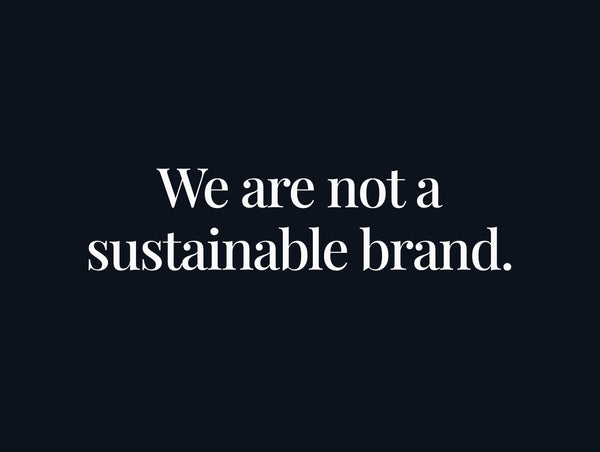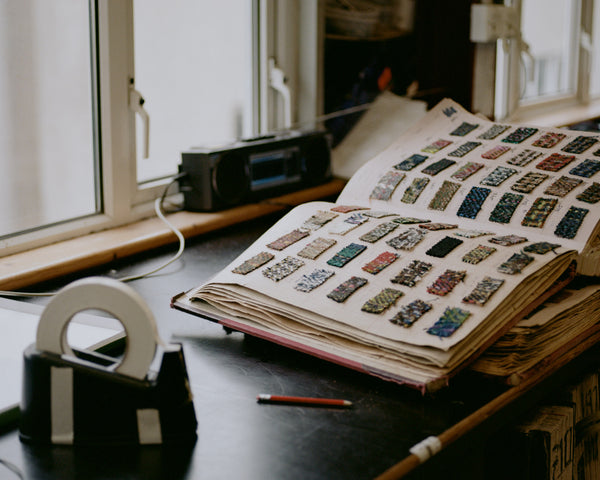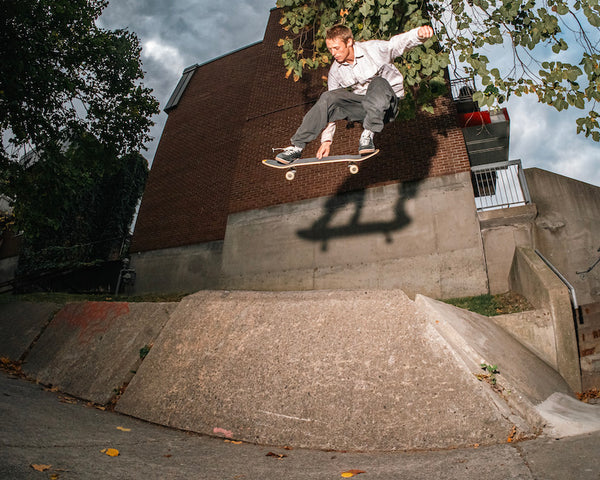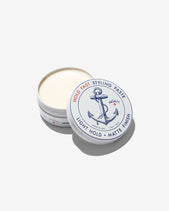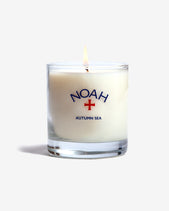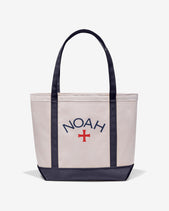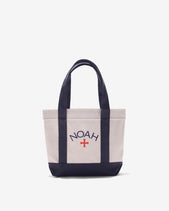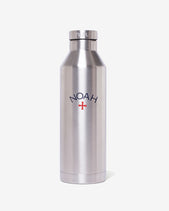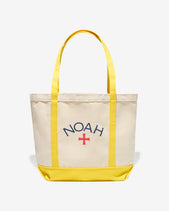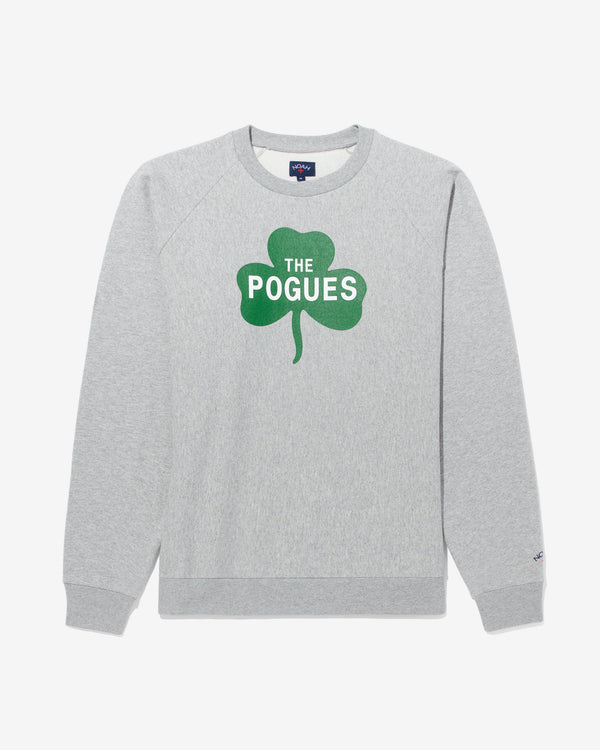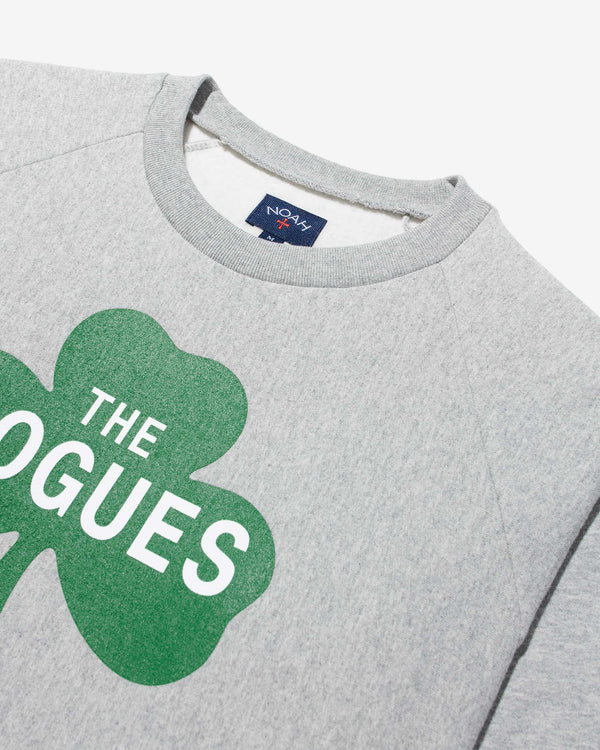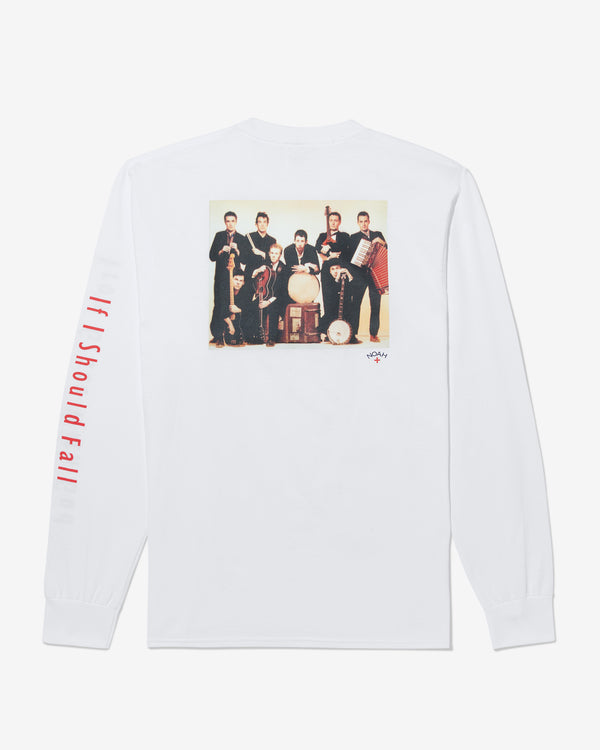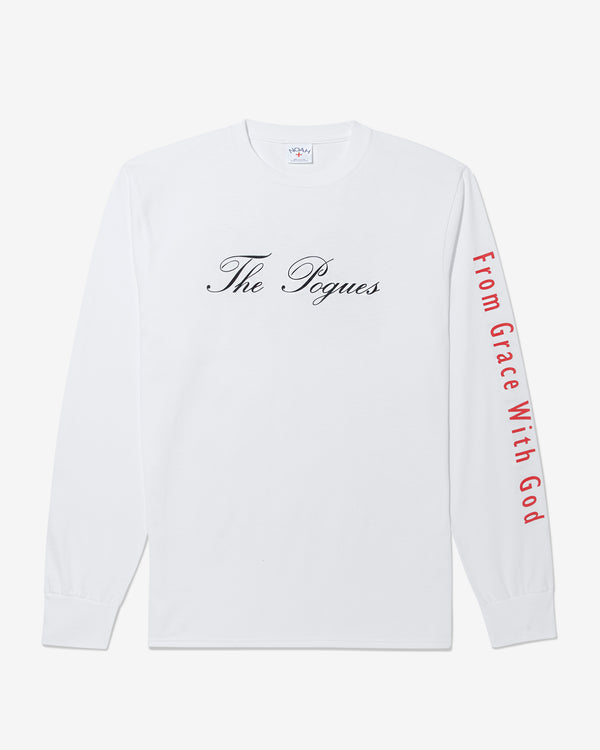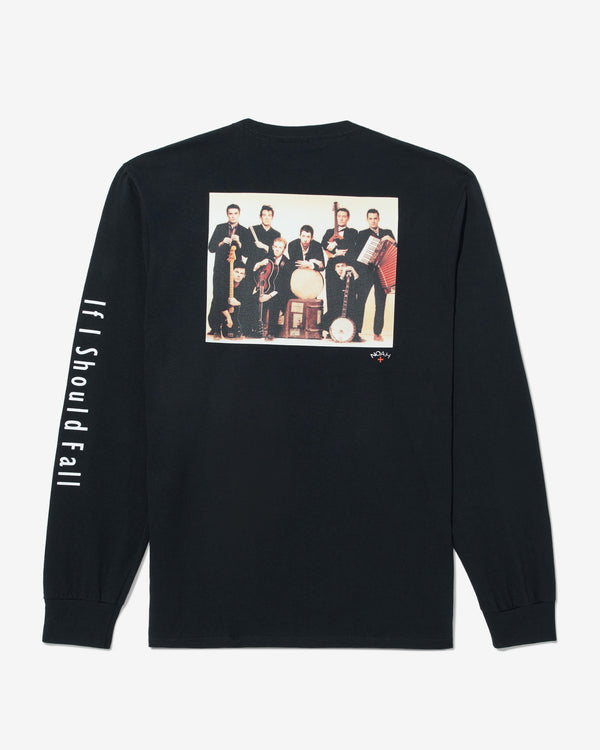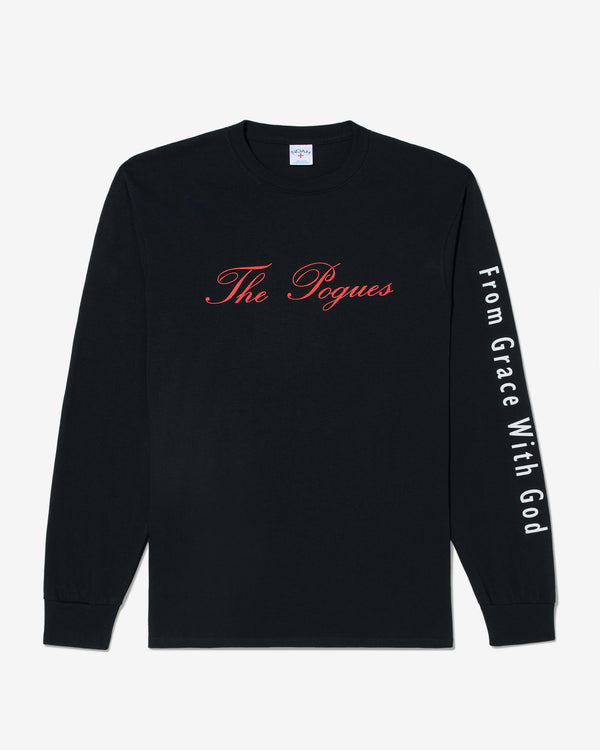

The year was 1988, and it was Saint Patrick’s Day. On the stage of London’s Town & Country Club, a contingent of eclectically dressed, fierce-faced musicians, drenched in sweat, vibrating with an energy that lay somewhere between belligerence and rapture, burst into the opening measures of what was undeniably rock n’ roll—a rock n’ roll song anchored, however, by the equally undeniably Celtic melodies of an accordion and tin whistle. Standing before them all, in the face of a raucous crowd, an emaciated, visibly intoxicated youth leaned over his microphone stand, eyes entirely obscured behind black sunglasses; his striped shirt evoking something between convict and midshipman. Swaying silhouetted in the lights that ebbed and flowed from blood red to Hibernian green, he bared the handful of teeth that remained in his mouth in a snarl and began to sing.
They were The Pogues, of course, and the striking frontman was Shane MacGowan, a poet-provocateur who, despite his birth in Kent County, less than fifty miles from the concert hall where they now performed, was already beginning to be regarded as one of the most important voices of 20th century Irish culture. So it would follow that Pogues would, by the end of their union, become oft-cited the most notable exemplar of Irish music in the contemporary era, despite (as the odd detractor would never hesitate to write up) none of the four founding members being born in Ireland.
But the diasporic Irish experience and the domestic Irish experience and the shared strands of story and sufferance have always been intertwined—and when Shane took the stage, there was no denying his roots and his spirit. He was imbued with that culture early on, after all; his parents were natives of the Emerald Isle, who just happened to be visiting Kent at the time of his birth. Therefore, his earliest memories were of County Tipperary, where he spent the first six years of his life on a small farm with a large cohort of his mother’s extended family, living an almost fantastical existence that teetered between the bucolic and the beggared.
He recalled later in life of reenacting guerilla warfare as he played with his cousins in lieu of hide-and-seek; of long conversations held with the family’s pets and livestock; perhaps most importantly (and surely linked to all of the above), of having his first beer and whiskey well before he was moved back to England, a few months shy of his seventh birthday. How could a child such as himself adapt to the simple life of an English schoolboy after all that? Shane already had found his homeland; so too he found a sense of self, and there was no reconstructing him. He became belligerent and rebellious. It was no wonder, then, that he found his calling in the nascent punk rock scene.




Pages from ‘Bondage’, a punk zine by Shane MacGowan, 1976.
From inception, The Pogues were not so much self-contradictory as they were complex; their at-times disparate qualities were justified by one another if lined up in looping succession. Formed in London, it was true that they were a London band, and so they had their London songs; especially early on, they were a London punk band, springing from the same scene that gave London (and the world) The Sex Pistols and The Clash; they were the sort of punk band that would knock their heads against the walls and into trash cans and get pieces of their ears bitten off at concerts; still they were also the sort of punk band that sang protest songs about freeing political prisoners and drinking songs about picking fights with blackshirts; the causes they extolled, when it became specific, tended to be Irish causes; so it was also true that they were an Irish band; volatile politics of the decade aside, they drew from Irish musical tradition as well.
UK-born or not, many of The Pogues did have Irish heritage; more importantly, they covered many classic Irish tunes (and skillfully) wrote more of their own, sparking renewed interest in the genre. It was telling of the nature of The Pogues that it was often their renditions of classic songs that were most infused with the trappings of punk rock, while some of their original compositions seemed to have been penned a hundred years prior. Their influences were collaged and stitched together, but unapologetic and honest. When Phil Chevron, the band’s Irish-born guitarist and sometimes-singer (he joined three years after The Pogues’ founding) wrote “Thousands are Sailing”, he created a song that spoke to the tragedies and triumphs of the Irish-American diaspora more explicitly and heartfelt than any track from a top-three-peaking album before or since; sung by Shane, it remains one of the band’s emotional highlights.


Of course, when it comes to The Pogues and their American connections, “Fairytale of New York” must be remarked upon. Without a doubt their greatest commercial hit, it was far from a standard pop song: lyrically as Irish and Irish-American and New Yorker of a composition as could be—but also, again a sort of general anthem for the experience of an impoverished immigrant song—yet more than any of this, a perfect love song and a perfect Christmas song, one that continues to reemerge on the the top charts every Christmas season; it was estimated that in the UK, it is the most-played Christmas song of the 20th century, while it finds success in the states too.

Perhaps this was a high point for the band; a harmonious time, at any rate, and one that would not last. They could find common ground on the love songs and those of the emigrant experience, but many other members of The Pogues wanted to move in a more experimental direction, drawing from a wider variety of world music influences, while Shane’s tendencies, as well as those of the Irish-born members of the band ,were angled in a more overtly political direction. Shane claimed to feel more guilt for his lack of political action as he aged, he remarked more than once the feeling of shame induced from being too much of a “coward” to join the Irish Republican Army. Still, he found ways to contribute to his cause—songs like "Streets of Sorrow/Birmingham Six," where he wrote and performed with the Dublin-born Terry Woods, attracted both praise and anger from either side of the Irish Sea. A searing indictment of political oppression that drew attention to the wrongful imprisonment of the Birmingham Six and Guildford Four, ten Irish men falsely accused and scapegoated for a series of pub bombings; the song proved inflammatory enough to be banned from airplay in the United Kingdom until the convictions were finally overturned.

The Birmingham Six. Clockwise left to right: Patrick Joseph Hill, Hugh Callaghan, John Walker,
William Power, Robert Gerard Hunter, and Noel Richard McIllkenny.

The Guildford Four. Clockwise from top left: Carole Richardson, Gerry Conlon, Paul Hill, and Patrick Armstrong.
This incident, as well as statements given in various interviews—his support for paramilitary leader Dominic McGlinchey, for example, who he stated was a “hero” and a “great man”—was enough to get him a meeting with Gerry Adams, president of Sinn Féin, whose Republican activism resonated deeply with the Shane’s ethos of nationalistic resistance and rebellion; the men would remain fast friends for the remainder of Shane’s life.
Shane claimed that is was these “political differences” that ultimately estranged him from the rest of the band, as well as their movement away in terms of geography and lyrical influence from his heritage; this latter point, at least, may be a thin argument to make. As much as he loved James Mangan and Brendan Behan, his poetic influences were not confined to Erin; on Hell’s Ditch, his last album recorded as a Pogue, songs penned by him about both Federico García Lorca and Jean Genet feature prominently. More likely the severance of his role as frontman was due the reason that the other Pogues provided: Shane’s propensity for drink, a well-documented and (self-described) integral part of his character and creative process. He didn’t need to drink, he would say, but due to his enjoyment of the process, he saw no reason to stop. After a string of public collapses and missed shows—including one where The Pogues were meant to open for Bob Dylan—the band saw otherwise. He had taken the drunken archetype too far for them; even as he transcended the confines of outright stereotype, defying categorization in many ways, the charisma and lyrical genius no longer outweighed the troubles of it all.

Shane claimed that is was these “political differences” that ultimately estranged him from the rest of the band, as well as their movement away in terms of geography and lyrical influence from his heritage; this latter point, at least, may be a thin argument to make. As much as he loved James Mangan and Brendan Behan, his poetic influences were not confined to Erin; on Hell’s Ditch, his last album recorded as a Pogue, songs penned by him about both Federico García Lorca and Jean Genet feature prominently. More likely the severance of his role as frontman was due the reason that the other Pogues provided: Shane’s propensity for drink, a well-documented and (self-described) integral part of his character and creative process. He didn’t need to drink, he would say, but due to his enjoyment of the process, he saw no reason to stop. After a string of public collapses and missed shows—including one where The Pogues were meant to open for Bob Dylan—the band saw otherwise. He had taken the drunken archetype too far for them; even as he transcended the confines of outright stereotype, defying categorization in many ways, the charisma and lyrical genius no longer outweighed the troubles of it all.
This incident, as well as statements given in various interviews—his support for paramilitary leader Dominic McGlinchey, for example, who he stated was a “hero” and a “great man”—was enough to get him a meeting with Gerry Adams, president of Sinn Féin, whose Republican activism resonated deeply with the Shane’s ethos of nationalistic resistance and rebellion; the men would remain fast friends for the remainder of Shane’s life.
The legacy of The Pogues mirrors the legacy of Shane MacGowan, more or less—their importance and impact unmistakeable, but their history so multifaceted and rich that what one takes from it, exactly, is rather subjective. They reunited several decades after their separation for several sold-out tours; perhaps the reasons for the connection with the crowds varied between Boston and London, Dublin and Sydney; perhaps not; a case must be made for the fact that as singular as the influences and messages of The Pogues were, all this was still secondary to the skill of the band and the quality of the music alone.
When Michael O’Higgins, the then-President of Ireland presented Shane with a Lifetime Achievement award in the later years of his life, the reasons given were somewhat ambiguous—he spoke of Shane as a poet, but also as something of a force of destiny, preordained by a higher power to spread his words around the globe and connect his scattered peoples. It’s hard to deny that he did, at least to some extend. When he passed late last year the streets of Dublin were filled in mournful celebration befitting a head of state or national hero. Weeks later, on Christmas Day, what would have been his sixty-sixth birthday, “Fairytale” again found its way towards the top of the charts around the globe.
There was another love song that The Pogues performed back in 1988—“A Rainy Night In Soho”. Shane MacGowan was in London when he wrote and recorded it at Elephant Studios; the music video depicts the Soho of London; nevertheless, Shane claimed that he wrote it with the homonymous region of New York City in mind, in the hopes that the aged Frank Sinatra would perform a rendition. When one listens to the lyrics, it can’t be said that Sinatra would not do them justice; nevertheless, they suit the voice and the hand that penned them far too too well for any regret. The ambiguity is his own. Is he singing about a woman or a spirit? Shane freely admits—in later remarks, but also in the lyrics themselves—that he doesn’t know, but he may know more than he lets on, or maybe he just knows that there isn’t one answer; it can be what left up to the listener to decide what they want to believe, to decide what they believe is important.



The Guildford Four. Clockwise from top left: Carole Richardson,
Gerry Conlon, Paul Hill, and Patrick Armstrong.
The legacy of The Pogues mirrors the legacy of Shane MacGowan, more or less—their importance and impact unmistakeable, but their history so multifaceted and rich that what one takes from it, exactly, is rather subjective. They reunited several decades after their separation for several sold-out tours; perhaps the reasons for the connection with the crowds varied between Boston and London, Dublin and Sydney; perhaps not; a case must be made for the fact that as singular as the influences and messages of The Pogues were, all this was still secondary to the skill of the band and the quality of the music alone.
When Michael O’Higgins, the then-President of Ireland presented Shane with a Lifetime Achievement award in the later years of his life, the reasons given were somewhat ambiguous—he spoke of Shane as a poet, but also as something of a force of destiny, preordained by a higher power to spread his words around the globe and connect his scattered peoples. It’s hard to deny that he did, at least to some extend. When he passed late last year the streets of Dublin were filled in mournful celebration befitting a head of state or national hero. Weeks later, on Christmas Day, what would have been his sixty-sixth birthday, “Fairytale” again found its way towards the top of the charts around the globe.






